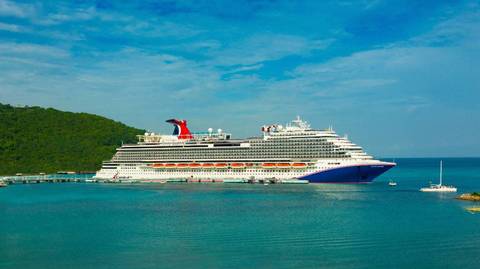Carnival Cruise Line Cracks Down on New Cruise Ship Scam
Carnival Cruise Line, one of the world’s largest and most popular cruise operators, is taking decisive action against a new and growing scam that has been targeting cruise passengers and tarnishing the brand’s reputation. This scam, which has recently gained traction on social media and via fraudulent websites, involves unauthorized third parties posing as Carnival representatives to trick consumers into paying for non-existent cruise deals, upgrades, and onboard services.
The Rise of the Cruise Scam
In recent months, Carnival’s customer service teams have been inundated with complaints and confusion from guests who claim to have purchased discounted cruises, priority boarding, drink packages, or cabin upgrades—only to discover upon arrival that these perks do not exist. Investigations revealed that many of these purchases were made through unofficial channels that cleverly mimicked Carnival’s branding, using similar logos, color schemes, and even fake confirmation emails.
These scams have typically targeted budget-conscious travelers looking for last-minute deals or steep discounts. Victims often report seeing social media ads or receiving emails that offer “exclusive” Carnival Cruise Line promotions. After clicking through, they’re directed to professional-looking websites designed to capture payment information. By the time customers realize the scam, their money is gone and there’s little recourse.
Carnival’s Response
Carnival Cruise Line has responded swiftly and publicly to the threat. In an official statement released earlier this month, the company emphasized that it does not partner with unofficial resellers for promotions or upgrades, and that all valid transactions should be made directly through Carnival’s website, its app, or authorized travel agents.
Christine Duffy, President of Carnival Cruise Line, commented:
“We want to ensure that our guests are protected and informed. These scams not only harm individual consumers, but they also damage the trust we’ve worked so hard to build. We are taking these fraudulent activities seriously and are working with authorities to identify and shut down the sources.”
Carnival has launched a dedicated task force within its security and digital operations departments to monitor and investigate suspicious activity online. The company is also collaborating with cybersecurity experts and law enforcement agencies, including the FBI and the Federal Trade Commission (FTC), to track down perpetrators and prevent future scams.
Educating Passengers
To further protect passengers, Carnival has rolled out a new awareness campaign titled “Cruise Smart, Book Safe”. The initiative includes email advisories, website banners, and push notifications through the Carnival Hub app, all warning customers to avoid third-party offers that seem too good to be true.
Passengers are urged to verify the legitimacy of any cruise offers by contacting Carnival directly or consulting with a licensed travel advisor. Carnival has also updated its FAQ pages and customer support lines to help address concerns and spot scams more easily.
The cruise line is especially targeting social media platforms like Facebook, Instagram, and TikTok, where many of the fake promotions are spreading. Carnival’s legal team is issuing cease-and-desist notices to fraudulent pages and urging platforms to take swift action in removing misleading ads.
Impact on Travelers
For passengers who have already fallen victim to the scam, the experience has been frustrating and disappointing. Some have shown up at the port expecting luxury suites and onboard credits, only to learn their bookings were fake or not upgraded. In many cases, Carnival has tried to accommodate these guests by offering partial refunds or assisting with alternate arrangements when possible, though it maintains that it cannot be held liable for transactions made through unauthorized sellers.
The financial loss to individual victims has ranged from a few hundred to several thousand dollars. More concerning is the potential long-term damage to consumer trust, especially among first-time cruisers who may now hesitate to book future voyages.
Looking Ahead
As cruise travel continues to rebound after the pandemic, scams like these pose a serious threat to the industry’s recovery and reputation. Carnival’s proactive measures to shut down fraudulent activity, educate passengers, and collaborate with authorities send a clear message: protecting its guests is a top priority.
Travelers are encouraged to remain vigilant, scrutinize any unsolicited offers, and ensure they are always booking through trusted channels. In an increasingly digital world, Carnival Cruise Line’s crackdown is a timely reminder that while deals may be tempting, due diligence remains essential.
If you’re planning a cruise, remember: if a deal sounds too good to be true, it probably is.













